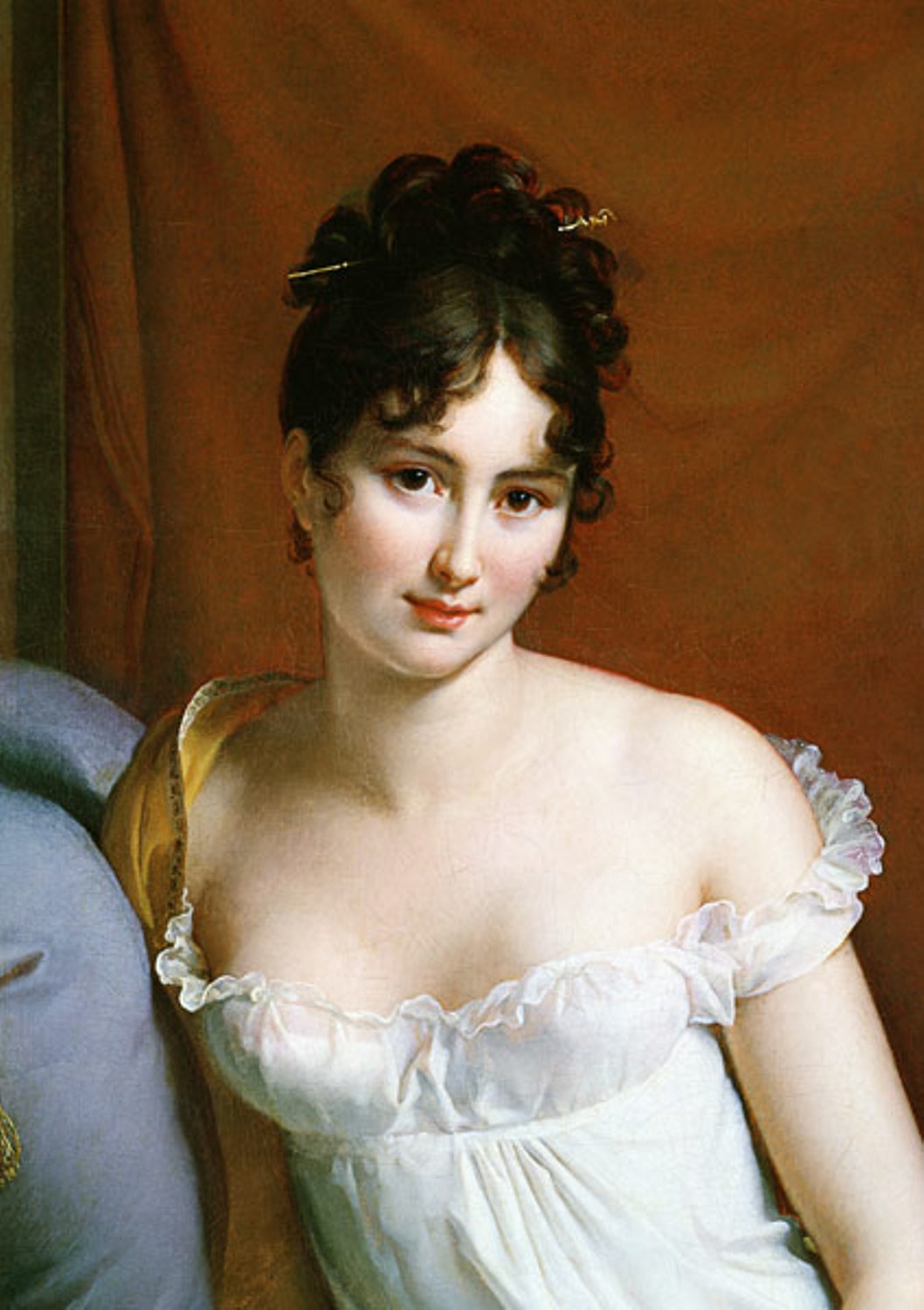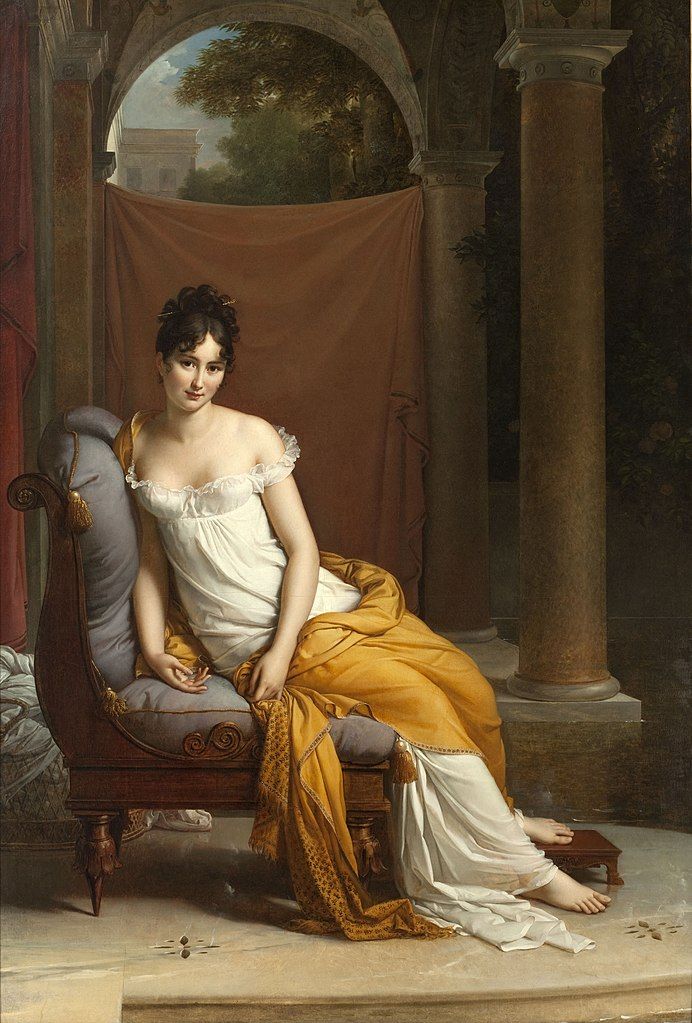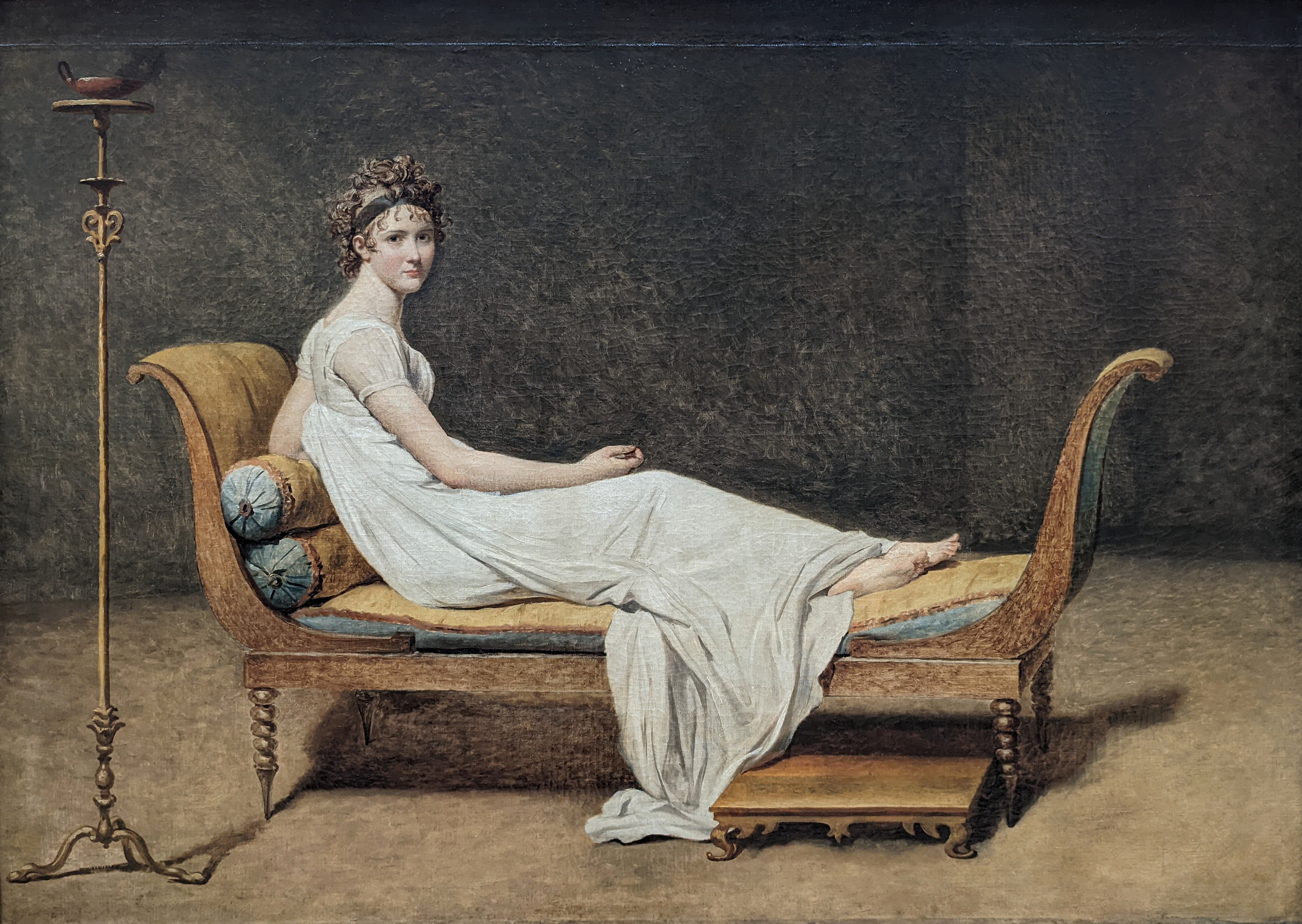How do we believe fame differs today than a few hundred years ago? With today’s social media and instant internet access, celebrities of all backgrounds are scrutinized in almost every moment of their lives. At the end of the 18th century, this would obviously not have been the case. To be famous the world over, word had to literally travel from mouth to mouth… and that is precisely how one Juliette Récamier, the darling of the European literary scene, came to be a legend in intellectual circles.

Juliette was born on December 3rd, 1777 in Lyon, France. As the only child of her father (the King’s notary and counsellor) and mother, Juliette enjoyed certain amounts of freedom and attention as a child that many others of the time did not. Juliette was also highly educated, her father being an educated man himself. Most importantly of all, accounts of Juliette did not portray her as a precocious or obnoxious child and teenager. If anything, she was described as shy, kind, modest and affectionate. With these wonderful qualities, a sharp mind and interest in literature, and a great amount of beauty, it is no wonder that Juliette had suitors from a young age. At the age of fifteen she was married, platonically, to a banker in Paris – Jacques-Rose Récamier, who was thirty years her senior.
Despite being married to a young, vivacious and beautiful girl, the marriage always remained chaste, and Juliette remained a virgin until her forties (there has been evidence to support the notion that Jacques was her own natural father, after having an affair with her mother 16 years prior to his marriage, and knowing that he was considered an “enemy to the republic” at the height of the French Revolution, Jacques may have married the girl to make sure she inherited his estate). Jacques noted her charitable nature, her interest in their reciprocal desire to bring forth happiness and contentment in each other. He treated her with great respect and freedom (at one point being willing to have her divorce him to marry someone with more advantageous finances, after he began experiencing financial woes, though she would not leave him), and she flourished. In Paris, Juliette became the socialite known for entertaining some of the greatest political and literary minds of the day in her “salon”.
 As time went on and interest in her intelligence, loveliness, refinement and gentility grew, Juliette became friendly with all manner of people. Some of the most notorious members of her salon were François-René de Chateaubriand (a French politician, diplomat, activist, historian and writer who ended up as one of Juliette’s life-long friends), Benjamin Constant (Swiss-French political activist and writer), Prince Augustus of Prussia (whose proposal she would ultimately reject), and the political Madame Germaine de Staël. Juliette enjoyed almost unprecedented independence in her ability to entertain and act as she saw fit – she also received many proposals, and was “courted” by many men, but never, as far as history is concerned, betrayed her husband. People were attracted to Juliette not solely because of her good looks, but because of her academic and literary prowess, her interest in social and political endeavors, and her apparent ability to charm a room with a single glance, smile or comment. Juliette Récamier was the epitome of an esteemed lady – a patron, a scholar, a magnetic and irresistible personality, and a beautiful and charismatic individual. Political and intellectual persons flocked to her sitting room, and the discourses had there (both with Madame Récamier and with each other) can be credited with several of the ideas and large-scale changes in the turbulence of the French politics of the day.
As time went on and interest in her intelligence, loveliness, refinement and gentility grew, Juliette became friendly with all manner of people. Some of the most notorious members of her salon were François-René de Chateaubriand (a French politician, diplomat, activist, historian and writer who ended up as one of Juliette’s life-long friends), Benjamin Constant (Swiss-French political activist and writer), Prince Augustus of Prussia (whose proposal she would ultimately reject), and the political Madame Germaine de Staël. Juliette enjoyed almost unprecedented independence in her ability to entertain and act as she saw fit – she also received many proposals, and was “courted” by many men, but never, as far as history is concerned, betrayed her husband. People were attracted to Juliette not solely because of her good looks, but because of her academic and literary prowess, her interest in social and political endeavors, and her apparent ability to charm a room with a single glance, smile or comment. Juliette Récamier was the epitome of an esteemed lady – a patron, a scholar, a magnetic and irresistible personality, and a beautiful and charismatic individual. Political and intellectual persons flocked to her sitting room, and the discourses had there (both with Madame Récamier and with each other) can be credited with several of the ideas and large-scale changes in the turbulence of the French politics of the day.
One of Juliette’s society friends, Madame Germaine de Staël, greatly influenced Juliette politically and their liberal and centrist opinions were the reasoning behind the two being exiled from France by Napoleon in1806. Juliette left for Lyon, then Rome, then settled in Naples, before she was eventually allowed to return to her native country, and to Paris almost ten years later. By her later years, however, Récamier had lost much of her money and was living, while not in destitution, in significantly reduced circumstances. That being said, Juliette’s enticing manner and charm made sure she continuously enjoyed a consistent stream of friends, intellectuals, politicians and activist visitors up until her death at age 71 of cholera. Today, her contributions may not be a well-known fact, but in today’s world there is (at the very least) a sofa, similar to a chaise lounge, named after her – as that was her preferred method of reclining while entertaining her guests!


